Can you trust PIA in China? If you’ve got your finger on the internet’s pulse, you’re aware that China isn’t exactly handing out online freedom medals. In fact, extreme government censorship and control is an attribute commonly associated with the country.
So, whether you’re living in the Middle Kingdom or just dropping by for business or leisure, the hunt for a VPN that can outsmart the Great Firewall is no joke.
Private Internet Access claims to be the best VPN for China. But while it has earned its stripes as a top VPN service, boasts of that nature are pretty standard in an oversaturated market. Still, is there some substance to the provider’s pitch? This article lays out all there is to know.
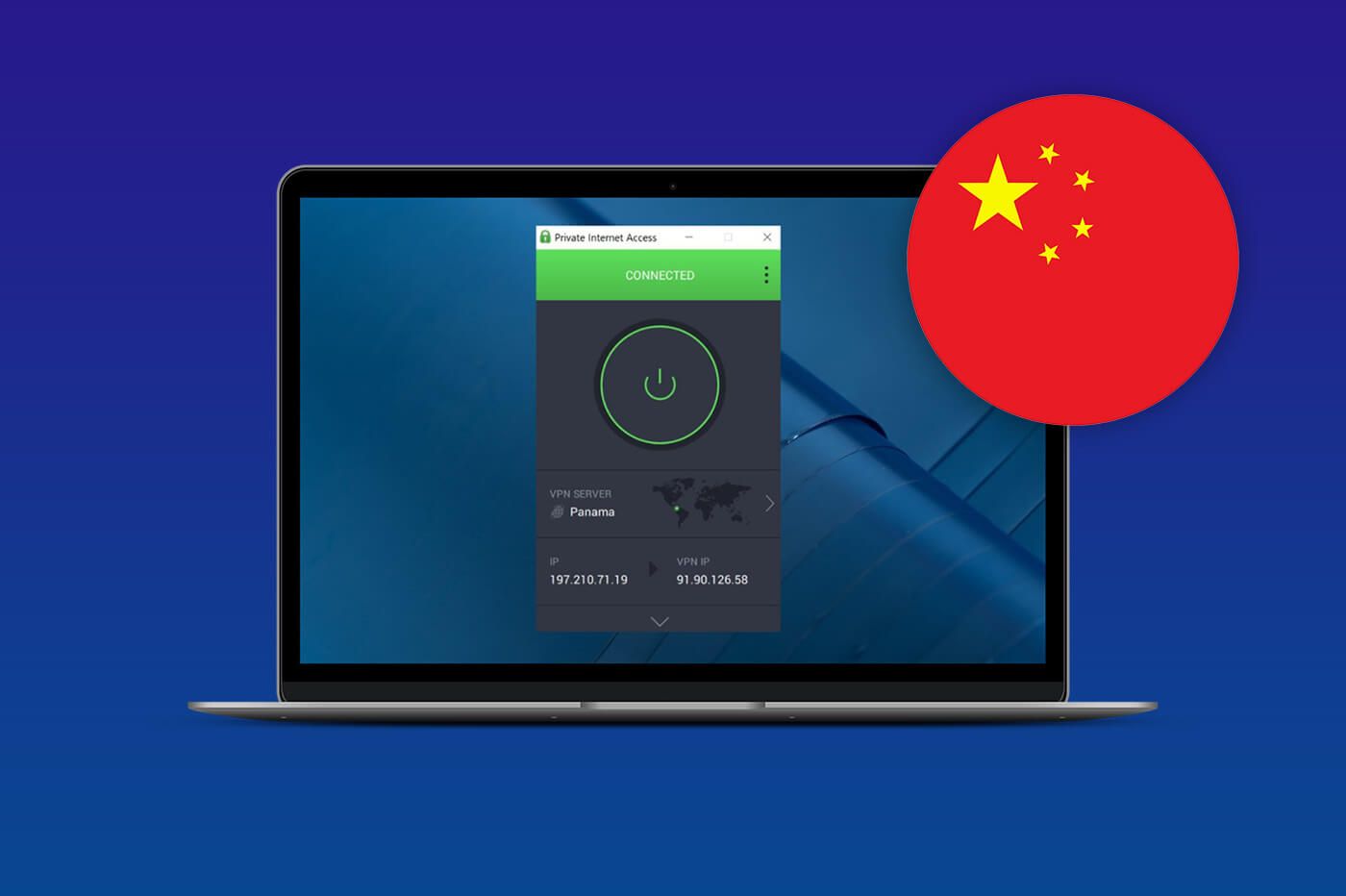
Does PIA Work in China?
Private Internet Access does not work reliably in China. While firsthand accounts point to some users managing to bypass the country’s stringent internet blocks, success stories are few and far between. The fact is PIA doesn’t exactly boast a stellar track record for handling the challenges of the Great Firewall.
We did some digging ourselves. When we reached out to its customer support, a representative acknowledged an ongoing struggle to maintain consistent access in China.
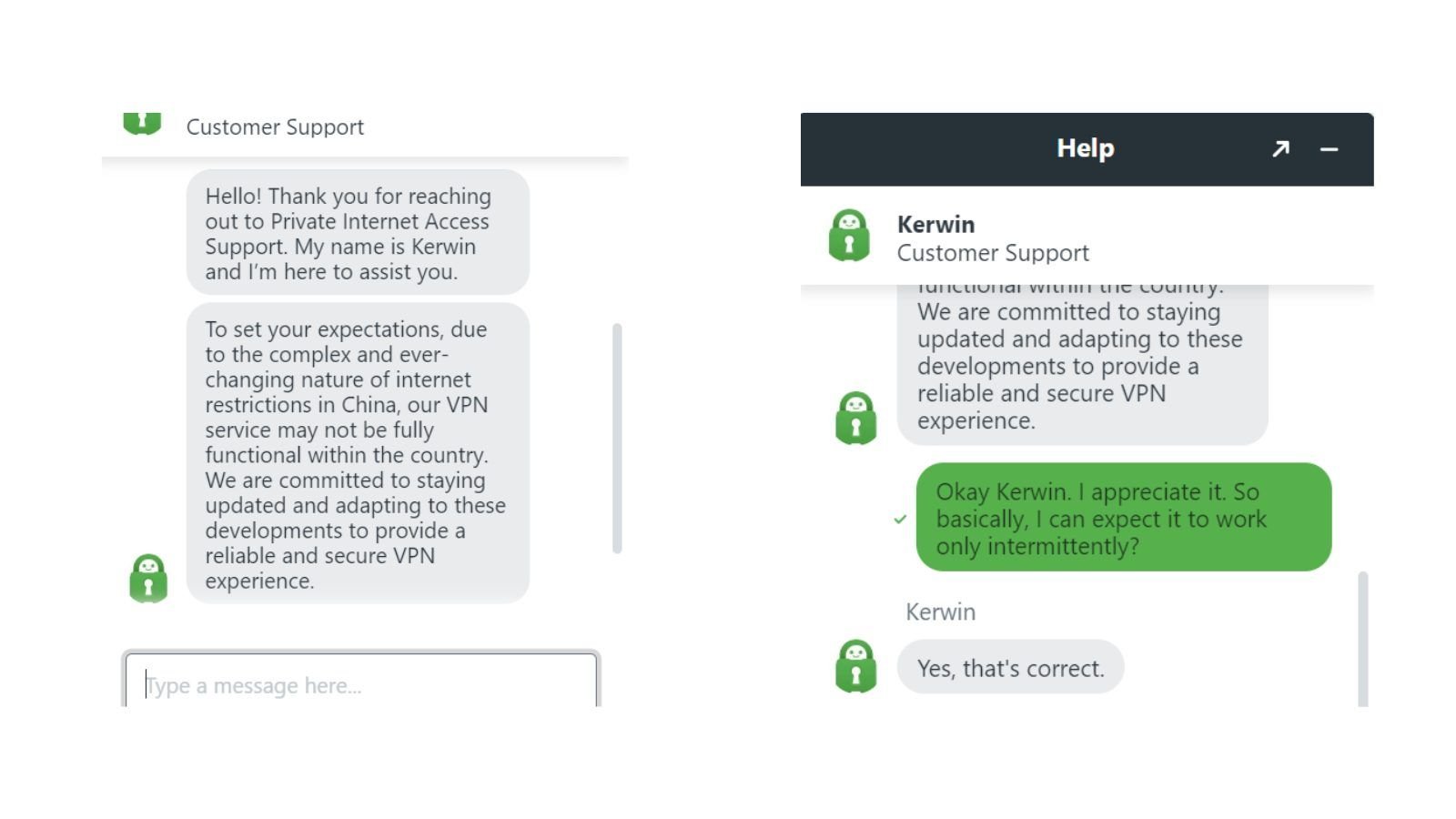
The provider’s FAQs page confirms this reality, pointing out that China is one of the countries with extensive, robust measures in place to restrict VPN use.
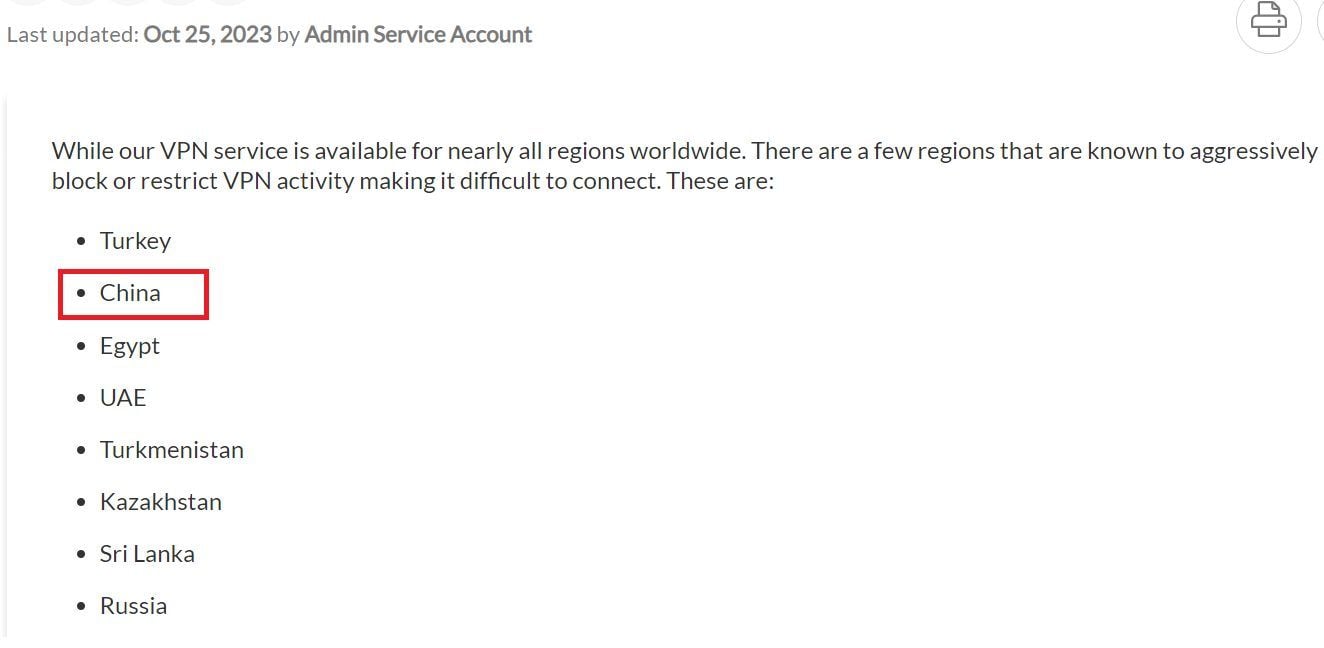
What Challenges Does PIA Face in China?
China registers abysmally low on the online freedom scale. In fact, Freedom House describes the conditions of internet users there as “profoundly oppressive,” solidifying its status as one of the most restrictive environments.
Because the government feels threatened by free access to information, thousands of foreign websites and online services are banned or partially restricted in China. They include popular apps like Facebook, Instagram, WhatsApp, YouTube, Telegram, Discord, Wikipedia, and Google’s entire suite of products.
Ordinarily, any decent VPN service should help you overcome any censorship issues.
However, if you live in China or are headed there on a trip, you’re bound to encounter the nightmare that is the notorious Great Firewall of China. That’s a complex and ever-evolving ecosystem of technological and legislative measures that presents a daunting challenge for any VPN, including PIA.
Its arsenal of roadblocks includes using sophisticated deep packet inspection (DPI) tools to dissect data packets and search for telltale signs of VPN encryption and tunneling protocols. It also employs DNS poisoning and keyword filtering.
What’s more, it constantly monitors and actively blacklists VPN servers. As a result, most providers are locked in a relentless game of cat and mouse where they scramble to deploy new servers before the old ones disappear into the censorship void.
That is, those VPNs who haven’t given up — many have accepted they cannot beat the Great Firewall.
On top of the technical challenges, PIA has to deal with China’s simple yet efficient restriction of non-government-approved VPN websites. To offer services officially, a VPN must gain approval by providing backdoor access, and that counters the essence of using a VPN service in the first place.
What PIA Features Should Work For China?
While Private Internet Access doesn’t always work in China, there have been instances where it’s been known to come through. Here are the features that make that possible:
Obfuscation
Private Internet Access offers multi-hop, which adds an extra layer of encryption over your VPN traffic by rerouting it through a proxy. When you activate this feature, the VPN also obfuscates your connection using Shadowsocks. That is to say, it hides the fact that you’re using a provider.
That said, Shadowsocks isn’t available for every PIA location. If China makes the list, there’s a decent chance that the VPN works there.
But even then, there’s no guarantee, thanks to the Great Firewall’s advanced DPI techniques, which are very difficult to bypass.
Large Server Network
Private Internet Access boasts the most extensive network in the VPN industry, with upwards of 30,000 servers in its collection — and that number is always rising. A vast network means more connection options, and that increases the chance of finding an unblocked server in China.
However, the Great Firewall uses advanced monitoring tools to identify and blacklist new VPN server IP addresses. This can happen really quickly, sometimes within hours of PIA adding a new server.
Consequently, even if you happen to come across a PIA server that connects in China, it’s unlikely to do so for long.
Modern Protocols
PIA’s use of modern protocols, like OpenVPN and WireGuard, is another card in its deck. They are designed to provide secure and efficient VPN connections and work better than largely obsolete options like PPTP and L2TP.
However, again, these protocols aren’t immune to the Great Firewall’s monitoring and detection measures.
What to Do If You Can’t Connect to Private Internet Access in China
Ideally, you should switch to a VPN that works reliably in the country. We’ll discuss the providers we trust to do so later on.
However, for any number of reasons, that may not be an option. In such a situation, you may try these measures, which the VPN recommends. They are not guaranteed to work, but they just might.
1. Switch to WireGuard
The relatively new WireGuard is widely regarded as the fastest tunneling protocol around because it’s lightweight, and there’s much less going on in the background.
On the other hand, it doesn’t compromise your online safety for speed and may ensure a secure connection even in the face of the Great Firewall.
Enabling WireGuard is simple:
- Launch the PIA app and navigate to Settings.
- Select Protocols on the left-hand tab.
- Toggle the protocol button to WireGuard.
2. Use OpenVPN Connect
If WireGuard doesn’t break through, you may try using OpenVPN Connect instead. To do so, you must install the client app.
1. Download OpenVPN Connect from the official website or your smartphone’s app store.
2. Go to OpenVPN Config Generator on PIA’s website.
3. Select your OpenVPN Connect version and your platform.
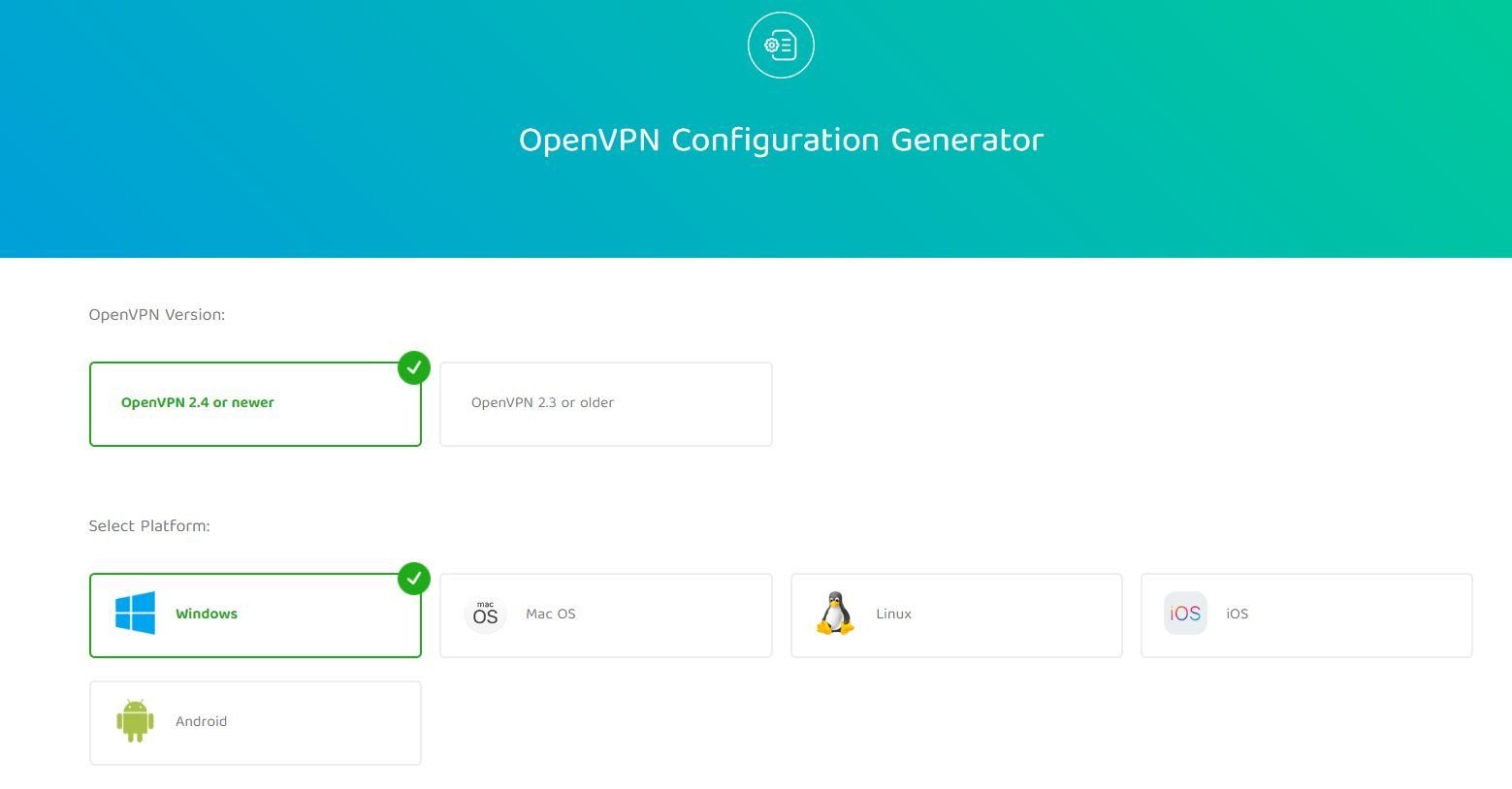
4. Select China as your region.
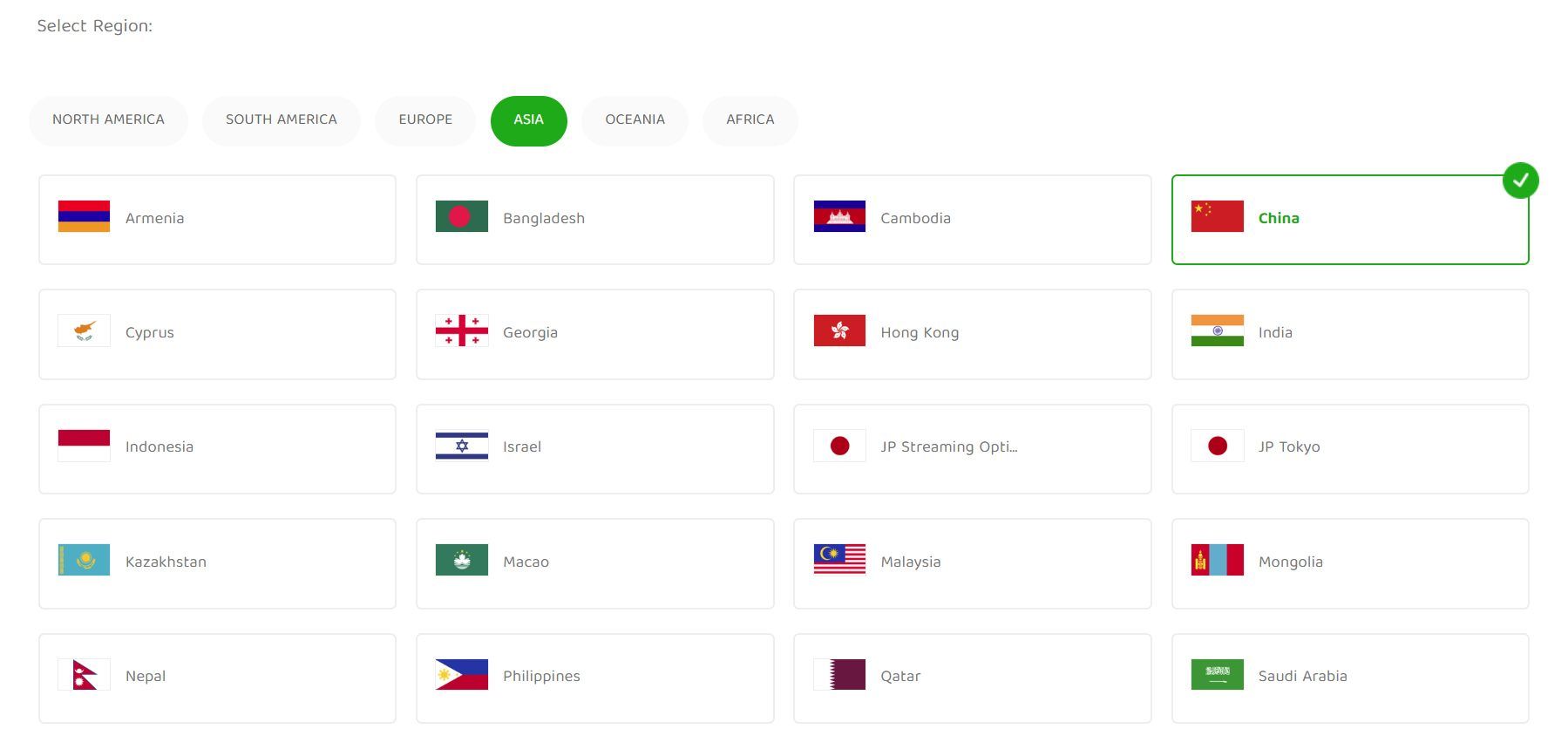
5. Choose one of the standard configuration files available.
6. Tick Use IP and click Generate. Wait a few seconds while the file downloads.
7. Import the installed file to the OpenVPN Connect app.
8. Connect the file and try to browse the internet.
You’re all set. Connecting using the manual configuration may help you bypass online restrictions in China.
3. Generate a Configuration File
As a last resort, the provider recommends you generate your own configuration file that specifies what IP address the VPN connects to.
Best Alternatives to Private Internet Access for China
If Private Internet Access isn’t cutting it for you even after trying the potential troubleshooting options, you may have to opt for a more reliable alternative in China.
There are not many of those. Plus, their websites are blocked in the bargain, so you have to download them before traveling to China. With that in mind, here are the PIA alternatives for China you should be considering.
1. NordVPN
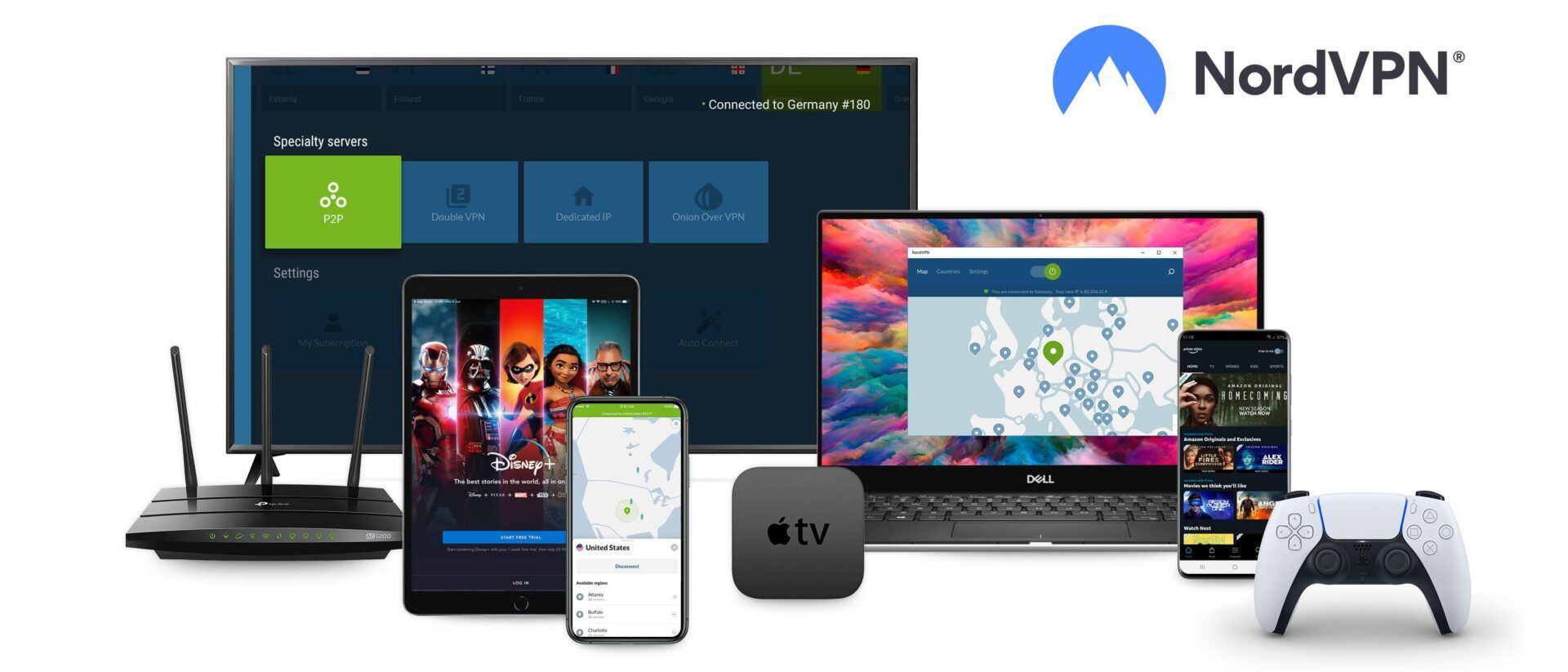
NordVPN is not only the best overall option for China, but it’s also arguably the highest-rated VPN service on the market. This option comes with a huge collection of servers, with 6,300+ servers in 111 countries.
NordVPN comes with obfuscated servers to camouflage your online traffic so it looks like regular HTTPs activity. It changes your data packets so effectively that even the Great Firewall has a hard time deciphering it and has to let it through.
In addition, the VPN implements its own proprietary protocol, NordLynx, built around WireGuard. It’s just as speedy as the latter and ensures you suffer snail-slow internet speeds, even if you’re connecting to distant servers. Plus, NordVPN recommends this protocol for use in China.
NordVPN’s IP, DNS, and WebRTC leak protection measure comes enabled, guarding against data exposure from the box. It offers system-wide and app-specific kill switches which disable internet access when the VPN connection drops unexpectedly or when you manually disconnect, so Chinese authorities are never aware of your online activities.
The provider’s RAM-only servers require power to store data. Once powered off, all information on them — including those relating to your online sessions — gets wiped off. NordVPN’s no-logs policy means it doesn’t store personally identifiable data anyway.
If you’re looking to give it a go, a 30-day money-back guarantee backs your subscription. You may request and receive a refund if you’re unimpressed within that time.
2. ExpressVPN
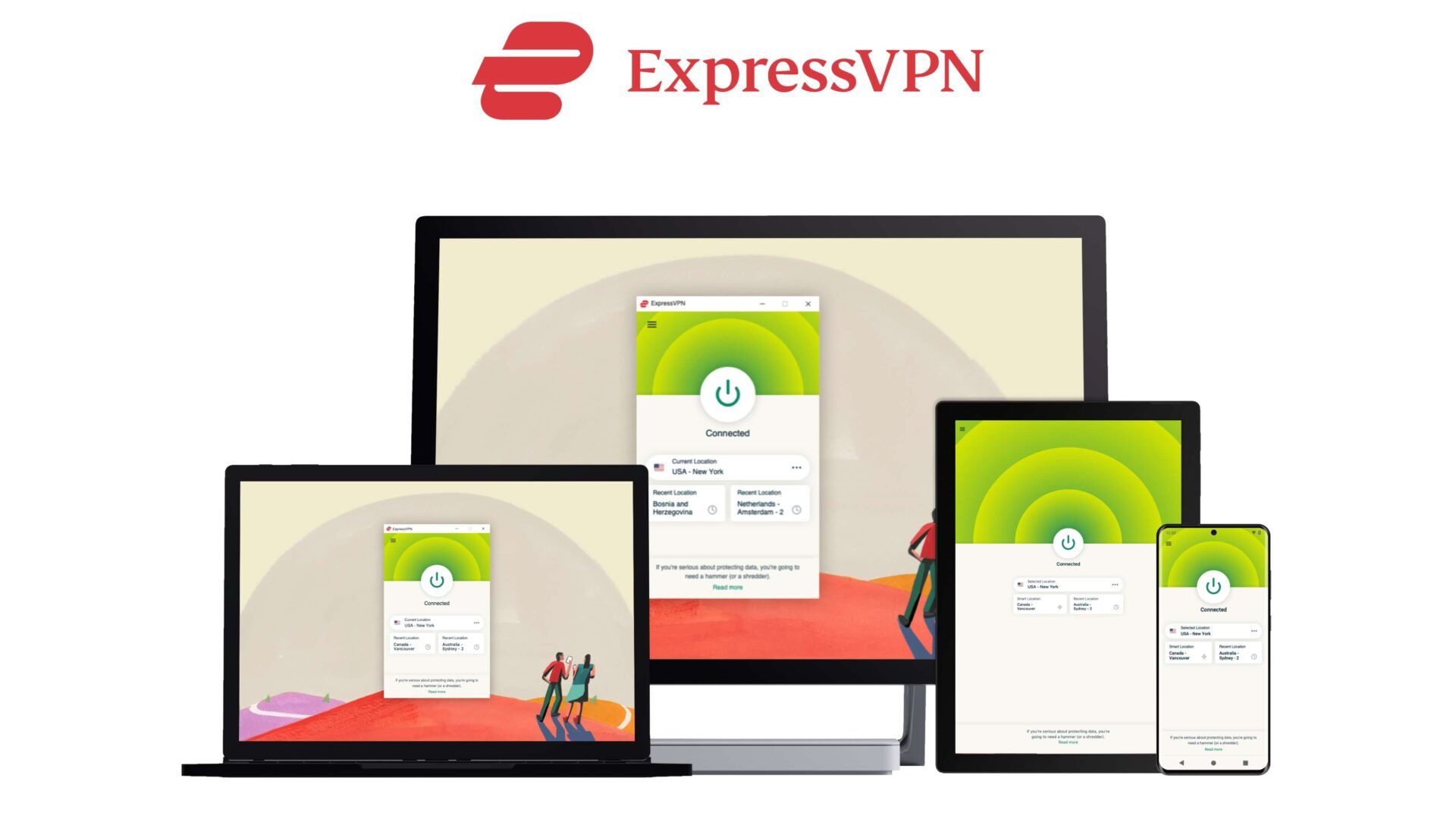
The highly popular ExpressVPN is another excellent alternative for use in China. Its 3,000+ servers across 105 countries aside, this feature-rich VPN has a lot more to offer residents in the Eastern Asian country.
All of ExpressVPN’s server locations have built-in obfuscation to mask your VPN use. Setting your protocol to “Automatic” lets it select the best server for your network so the feature works properly.
In addition, the provider offers a kill switch to shield your data whenever you temporarily lose your VPN connection. IP and DNS leak protection ensure you’re not inadvertently exposing your IP address to Chinese authorities.
What’s more, you needn’t worry that they will get a hold of details of your online sessions. ExpressVPN’s pacesetting TrustedServer technology uses volatile memory, which means they are wiped clean after each reboot. Besides, the VPN operates a strict zero-logs policy, which has undergone third-party testing.
ExpressVPN is one of the quickest VPNs out there, which is great, as obfuscation adds extra layers of complexity and will affect your connection speeds. For a balance between speed and security, you may use the VPN’s Smart Location feature.
The VPN offers a 30-day money-back guarantee, so you have ample time to see if it works in China.
3. Astrill VPN
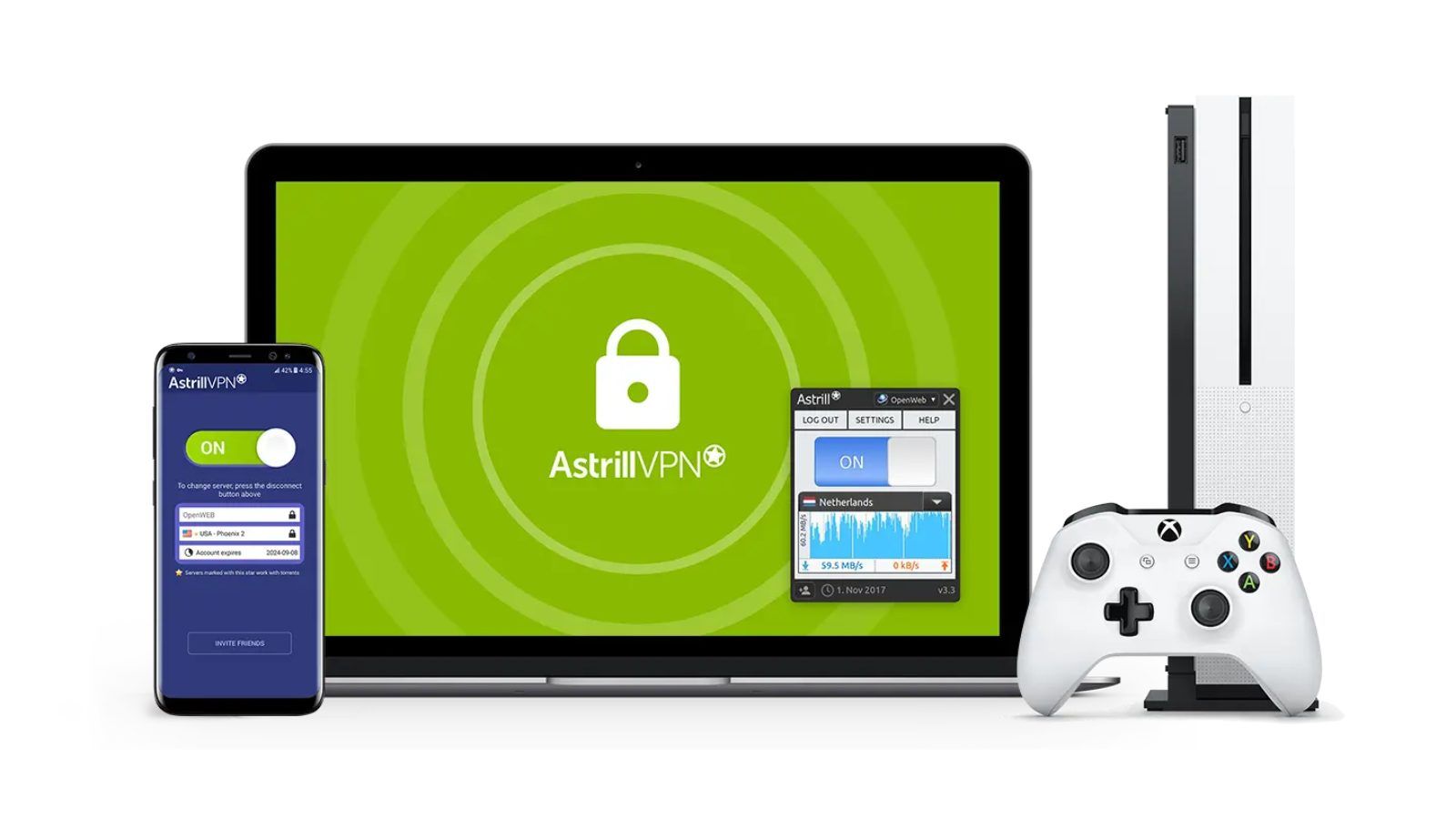
Seychelles-based Astrill VPN consistently works in China. The provider’s modest network contains around 300 servers across 58 countries. However, there are nearby locations like Taiwan, Hong Kong, Thailand, and Japan.
The VPN’s secret lies in OpenWeb and StealthVPN, both proprietary protocols designed to work in countries with elevated censorship, like China. The latter is inspired by OpenVPN. However, unlike the mainstream protocol, it bypasses firewalls that can perform DPI on the fly, like the Great Firewall.
We also like Smart Mode, a unique feature that simulates DNS and HTTP traffic — with a regional Chinese IP address, no less. The VPN guarantees that with this feature, you can use any blocked website or online service in China without leaving any signs or clues that can be detected. Consequently, your IP address cannot be blocked.
Astrill VPN’s servers are 1 Gbps or 10 Gbps, depending on which you choose. Consequently, you can expect fluctuating speeds, even while connecting to options in the same area. That said, even the slower servers are not slow.
Besides, to remedy the performance impact of obfuscation, Astrill VPN offers a VIP add-on with optimized speeds and latency for Asian residents and gamers.
However, there are a couple of drawbacks to note. While we’re impressed by Astrill VPN’s capabilities in China, it’s easily one of the most expensive providers on the market. What’s more, there’s no leeway to try it out risk-free — all sales are final, and the VPN offers no money-back guarantee.
Conclusion
Can you depend on PIA in China? No, you cannot. While the provider may work intermittently, it’s even more likely not to do so, thanks to the country’s online freedom–resistant measures.
Thankfully, you needn’t resign to extreme censorship and monitoring while in China. We have highlighted three PIA alternatives that are significantly more reliable in the Middle Kingdom. Of those, our top choice is NordVPN, as it checks all the right boxes.
Frequently Asked Questions
Can you download PIA in China?
The Great Firewall obstructs access to most VPN websites, including PIA’s. Consequently, downloading the VPN there may pose an issue.
We recommend that you download PIA, or its more reliable alternatives, before traveling to China. Otherwise, you may try using third-party websites with caution.
Is using Private Internet Access legal in China?
China restricts VPN services that are not government-approved, and that includes Private Internet Access.
However, VPN services aren’t explicitly illegal in China, and many tourists and residents still use them to access restricted sites. In addition, there have been no reports of persons being arrested and prosecuted for using a VPN.
Which VPN works in China?
Our top picks to protect your identity and data in China while helping you bypass censorship are NordVPN, ExpressVPN, and Astrill VPN. While all three stand as reliable choices, our top nod goes to NordVPN for its consistent performance and robust features.